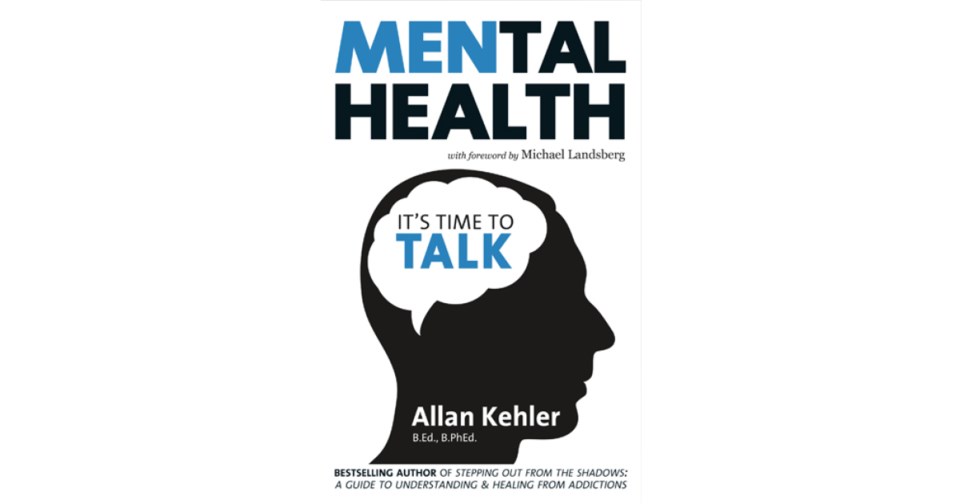HUMBOLDT — Men are statistically less likely to ask for mental health help than women, but one Saskatchewan author is trying to change that with the launch of his new book.
Allan Kehler, Saskatoon-based bestselling author and mental health advocate, launched his latest publication MENtal Health: It’s Time to Talk at McNally Robinson on Jan. 29.
The book is a collection of stories from Saskatchewan men about their own struggles with mental health, addictions, sexual abuse, and suicide, including a familiar name to the Humboldt area, former Humboldt Broncos assistant coach, Chris Beaudry.
Men want to speak, Kehler said, but we do not equip our men and boys to handle emotion.
“There are still so many barriers, especially for the generation between ages 40 to 60. They want to talk about their pain, they just don’t know how and there are all these fears of judgement, that people are going to perceive them as weak.”
Kehler wanted to publish these conversations so that other men can see that talking about mental health is okay and healthy.
“There’s these massive conversations because of these stories, the relatability when we can hear our stories through others.”
Beaudry does not shy away from the topic and is open about his history of alcoholism, depression, and anxiety on social media and as a guest speaker to schools and public events.
Beaudry knows from personal experience the power that sharing our stories can have in helping people feel less alone. He wanted to share that with others, and Kehler’s book was another way he could do that.
“When I first went to AA, when I heard somebody tell their story, I wasn’t hearing their story. I was hearing my own story in their words. When I heard my own story back to me, I was not alone… It’s that relating part that is so important.”
For anyone who hears Beaudry’s story, whether through his posts on social media, Kehler’s book, or a presentation, he hopes people take whatever they need from his story in order to move their own story forward, he said.
For one subject in Kehler’s book, moving forward came with telling Kehler his story for publication. His two brother’s prevented his suicide when he was a teenager but none of them spoke about it afterwards for almost two decades. When Kehler asked that the story be included in the book, the man knew that we would have to talk to his brothers about their experience. He told Kehler afterwards that finally talking about it caused a weight to be lifted off his shoulders.
Liberation like this is a common theme that Kehler was not looking for but found in all the stories in the book, he said, not just with some of the men, but with all of them. There is power in sharing those stories, he said.
“All these men were willing to share and be vulnerable. It, in turn, has given other people permission to do the same.”
Beaudry’s story is one of perseverance, Kehler said, and Beaudry chooses to go through his storm instead of around it.
“I have the utmost respect for the way he approached what none of us can comprehend.”
So how do we move forward from here?
Blaming the system or past generations is not helpful, Beaudry said, and it is up to those who have the tools to promote healing to share them with the next generation and that healing becomes commonplace.
“What I've found is when we share, we relate to each other. When we relate, we aren't alone anymore. When we're not alone it's easier to face our emotional wounds. When we face our emotional wounds, we heal. When we heal, we help heal the collective,” said Beaudry on Twitter for Bell Let’s Talk Day.
Making healing acceptable and “helping the collective” is crucial in passing on these tools to young men, Kehler said.
“The next generation of men are always watching us.”




